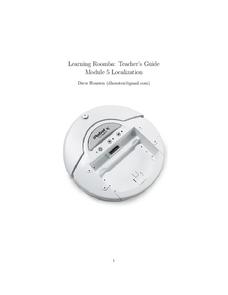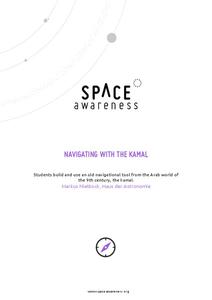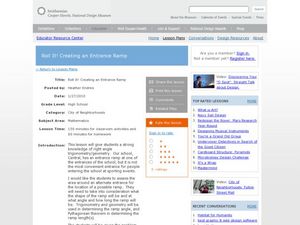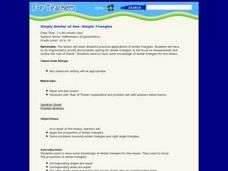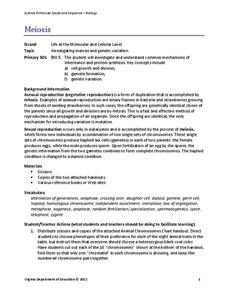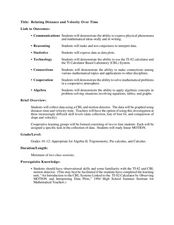Project Maths
Introduction to Trigonometry
The topic of trigonometric ratios is often covered with loads of rote memorization baked into the activity. This activity set, however, leans more on using similar triangles and discovery learning to help young geometers develop a deeper...
EngageNY
Putting the Law of Cosines and the Law of Sines to Use
Use the Law of Cosines and the Law of Sines to solve problems using the sums of vectors. Pupils work on several different types of real-world problems that can be modeled using triangles with three known measurements. In the process,...
Curated OER
Introduction to Trigonometry
Students identify the six trigonometric ratios and properties. In this trig instructional activity, students define basic trig functions as it relates to solving right triangles. They identify the equation for sine as o/h and cosine as...
EngageNY
Trigonometry and the Pythagorean Theorem
Ancient Egyptians sure knew their trigonometry! Pupils learn how the pyramid architects applied right triangle trigonometry. When comparing the Pythagorean theorem to the trigonometric ratios, they learn an important connection that...
Curated OER
Introduction to Law of Sines
Students solve problems using the law of sines. In this sines lesson, students work in groups and individually to solve problems using the law of sines. They identify real life problems that require the use of the law of...
EngageNY
The Motion of the Moon, Sun, and Stars—Motivating Mathematics
What does math have to do with the behavior of the earth and sun? Learn how the movement of celestial bodies has influenced the development of trigonometry. Scholars connects the details in mathematics to their...
Drexel University
Learning Roomba Module 5: Localization
Where is my robot? Pupils create programs that utilize the localization services that a Roomba uses to determine its surroundings.
Space Awareness
Navigating with the Kamal
Historians have proven that as early as 1497 skilled navigators were using a kamal to sail across oceans. Scholars learn about navigation tools and astronomy before building their own kamals. They then learn how to use it to determine...
Curated OER
Introduction to Parametric Equations
Pupils write and solve parametric equations. In this algebra lesson, students find and eliminate parameter of equations. They graph parametric equations and analyze the graphs.
Curated OER
Trigonometry in Action
Students examine how to apply the principles of trigonometry in authentic measurement situations. They work in groups to determine the height of an object such as a flag pole by determine the angle from their position to the top.
Curated OER
Hunter Fred's Quest for Dinner
Learners solve problems using trigonometric functions, specifically a problem about a tree stand. Pupils try to maximize the distance of hunting sight given certain restrictions. They use the Pythagorean Theorem, sine, cosine, and...
Curated OER
Wind Effects on Model Building: Pre-Lab for Truss Design and Testing
Emerging engineers perform pre-lab calculations in this first of a three-part lesson on model building. They determine the forces of tension and compression in a truss. After completion of the worksheet, pupils will draw a draft of their...
Alabama Learning Exchange
Add, Subtract, and Multiply Matrices
Introduce the concept of matrices with a pre-designed instructional activity. Learners watch video lessons to learn the ins and outs of adding, subtracting, and multiplying matrices. Using provided problems, they practice each operation...
Curated OER
This is to That
Students look at ratio, what it means for numbers or objects to be in a given ratio, and how ratios and fractions are related. They write and solve story problems which involve whole numbers, using addition, subtraction, multiplication,...
Curated OER
Roll It! Creating an Entrance Ramp
Students explore the concept of triangles. In this triangles instructional activity, students are to propose a plan for a ramp at their school. Students use the Pythagorean Theorem and trigonometry to determine the length,...
Curated OER
Attributes of Renewable Energy: From Nanopossibilities to Solar Power
High schoolers explore solar energy, why we use it and how we use it. In this renewable energy lesson students compare active and solar techniques.
Curated OER
Vectors
High schoolers listen to a lecture and complete a number of problems as they go. There are a variety of examples given and they are guided through the problem solving steps for each of the real-world scenarios regarding the purpose of...
Curated OER
Trigonometric Functions of Special Angles
Learners explore the concept of the six trigonometric functions, places where the functions can be utilized, and apply these functions to several electrical application problems.
Curated OER
Adding Trigonometric Functions
Students identify trigonometric functions. In this trigonometry lesson, students add and subtract trigonometric functions. They add sine and cosine waves and relate it to the real world.
Curated OER
Solar System Hall Model
Not novel, but fun, this activity gets your space science learners to model the size of the planets and the solar system along your school's hallway. Scaled measurements as well as actual distances are provided for both planet diameters...
Curated OER
Measurement
Students create two prisms out of the same paper. They calcuate the number of centimeter cubes needed to fill each prism. They discover the concept of volume.
Curated OER
Simply Similar at Sea: Simple Triangles
Tenth graders answer a variety of problems based on similar triangle and learn about the rule of thumb. They will test the rule of thumb by estimating the distance to an object in the classroom.
Curated OER
Meiosis
Using yarn and chenille stems, lab groups collaborate to model mitosis and meiosis. Brief background information and a vaguely written procedure comprise this outline. More instruction needs to be provided to learners about cell division...
Curated OER
Relating Distance and Velocity Over Time
Students calculate the distance and velocity over time. In this algebra lesson, students graph a linear function to represent the distance vers time travel. They interpret their graphs and draw conclusion.






